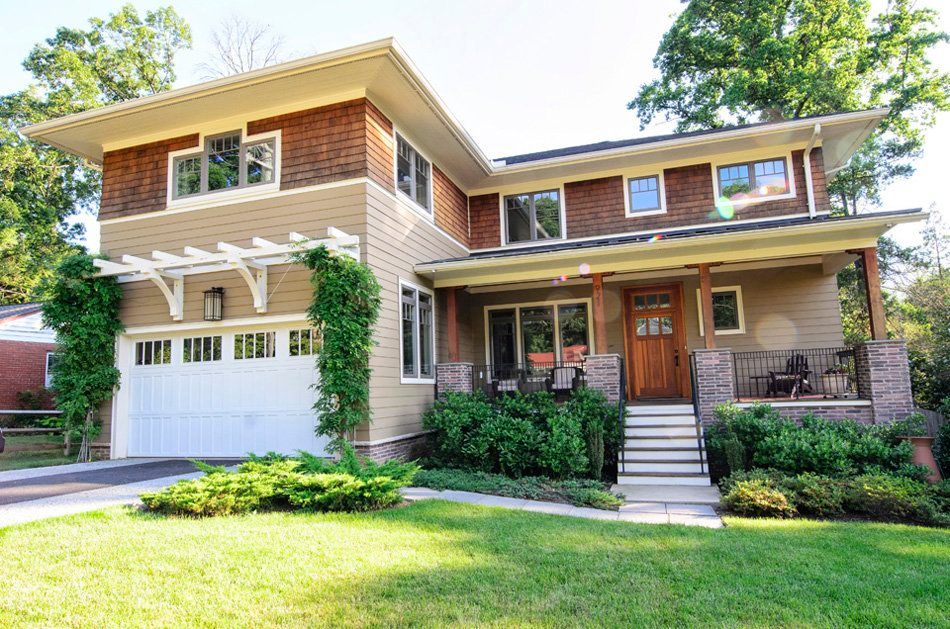



You come home from a long day at work and while channel surfing, you come across a show where guys are buying run-down houses, fixing them up and reselling them for huge profits before the first mortgage payment is due.
Wow! These guys claim they make as much money on this one house as you have in the last year. What’s more, they don't look or sound any smarter than you are and they're raking in the cash. You start crunching numbers and before you know it, you're thinking about a career change.
Before you quit your day job, can we talk?
In its simplest definition, flipping a house is a project where you capitalize your investment on the front end in the hope of realizing a profit on your invested capital – both dollars and time - when you finally exit the deal. But the idea of flipping single family residences (SFR’s) for profit has, frankly, always perplexed me since SFR’s are not investment grade properties. The dirty little secret that no one talks about is flipping houses is a speculative venture – gambling – where ‘investors’ bet on the come that that the sale price of their ‘asset’ will leave them a profit after all acquisition, rehab, debt service and transaction costs are accounted for at the end of the deal. In short, flipping is entrepreneurialism in its purest form.
Rehabbing is an activity where success is achieved by lowering the expenses and investing in key areas of the house - kitchens, bathrooms, floors or windows – and where project and financial management are critical for profits. For this reason, you mainly find real estate agents, renovation experts and building companies flipping houses. Real estate agents save on the transaction fees, professionals minimize the cost of renovations and companies save on income tax by declaring all current expenses in their Financial Statement. The winning formula for success is to group these three entities into a single organization.
Experienced flippers recognize that unlike commercial properties, single family houses are not income producing assets. There are no rents between the purchase and sale of the ‘asset’ and the outgoing cash prior to sale is extreme. You also have to consider the opportunity cost of your time and capital with this type of project. Suffice it to say that you need REAL intestinal fortitude to pursue this ‘investment opportunity!'
It's not as easy as it looks on TV.
The price run-up of the past few years led thousands of people to reach the same conclusion you have. There is a boatload of competition out there, which means that the obvious deals are gone in a heartbeat. The pros will tell you that they make their money on the front end by buying properties for at least 30% below market value. Finding those houses takes time and once you find them, you'll need to move fast. And no matter what the late-night gurus say about doing this with no money down, it hardly ever works that way. That means you'll need access to cash to do the deal, not to mention the rehab. By the way, you continue to pay your own bills while writing checks for your rehab.
Dream catchers
In this era of 500 channel cable TV, programmers scramble to fill the airwaves with any show that builds enough momentum to sell advertising. Because production costs are so low, reality shows are a favorite and any show with a good hook can exist for several seasons as long as advertisers stick around.
This results in WAY too many people watching WAY too much HGTV and Flip This House. Unfortunately, too many of these folks believe in the hype that's the basis of these shows and fantasize they'll be making a fortune in the next six months. The truth is such folks lack a lot of the basic skill sets – design, technical, management, negotiating, marketing and networking - required for success in this line of work.
Even the creators of Flip This House say no one can watch this show and get the impression that this is an easy way to make a living. In their videos, the creators even issue a warning: 'Do not try this at home. It's for trained professionals. You can lose your shirt and all your money.' Nevertheless, right now plenty of people - a lot of average Joes and Suzies – are jumping into the frenzy and will, unfortunately, go bankrupt. For some reason, when it comes to real estate investing it seems too many people impulsively leap before thinking and never develop a plan for success. Contrary to images presented by Reality TV, if this line of work was as easy as these shows make it seem, 286 million people would be flipping real estate right now.
But if you insist on watching TV, turn away from HGTV and take a look at Holmes on Homes on the DIY Network. It warms my Maple Leaf heart to watch this Canadian give the unvarnished truth about remodeling. Holmes typically rescues owners who get in over the heads while remodeling their own homes. His editorials alone are priceless. And while you may decide to look for another line of work after watching a few episodes, if you listen carefully and take notes, you can pick up a lot of pointers and avoid the same mistakes these homeowners made.
Let me illustrate this a different way. My girlfriend is an Acupuncturist who lovingly and professionally cares for her patients. After working as a massage therapist for 20 years, she went back to school to get the training and credentials she needed to practice her craft. After she obtained her Master’s degree and passed her licensing boards, she spent years honing her skills to the point where she is now running her own private practice. By anyone’s account, she is a trained and licensed professional.
But even though she has worked on me, even though I have built out her office and even though I occasionally help her with her insurance billing, I still don’t have a clue about what she does or why acupuncture even works. As a consequence, you you’ll never see me sticking needles in people’s butts simply because I’m not licensed to do this and I really don’t know the first thing about trigger points or energy meridians in the body. Pure and simple - sticking needles in people is simply outside of my skill sets the same way remodeling is WAY outside of the skills sets of the average investor.
Here's the catch
So the truth about real estate investing is that it is exactly the same as any other profession. Success in this line of work requires years of focused study and effort to master the many parts of the real estate process. Failure to fully understand any part of this process can cause a deal to go south. And while I understand and encourage the entrepreneurial desire of people to get in on the action, I am really still surprised by people who don't want to invest the time that's needed to learn this extremely complicated business. Remember, this in an industry where even Donald Trump gets into trouble on occasion.
So what is there to learn? Plenty.
ALL of these codes regulate how you will construct your remodel.
To measure success, compare your total investment and expenses to your net profit at resale and then determine your internal rate of return (IRR). By comparing your IRR with potential returns from other investment opportunities quickly allows you to judge whether this investment is worthy of your time and energy.
Let's look at an example where total investment and expenses are $200 000 and net selling profit is $250, 000. If your build-out takes 24 months, the yield on your investment is 11.8% - a decent return. If you can work more efficiently and dispose of your asset in12 months, you realize a return of 25% - much better! If you complete your rehab in 6 months, the effective annual rate is 56.3% - an incredible return! This is why effective project management is critical to your success.
It is also important to account for your time and effort spent managing your project. A rate of return of 10% can be interesting if you haven't expended much effort. However, if you work 40 hours per week on this project on top of your full time job, that 10% return must also account for you your salary during the rehab. Accounting for this time will necessarily lower your rate of return and may cause you to pass on this investment.
Cash is King
Lots of people with big dreams go to trade shows, attend real estate ‘Gurus’ weekend seminars and generally drink the Cool-Aid hype about how to buy a house with no money down. The problem is this: I've never seen anyone actually buy a house this way. The realty is the only folks making money with this technique are the gurus capitalizing on the dreams a lot of people.
Like it or not, cash is king in real estate. You NEED to have adequate savings in place to pay the bills while money is flying out the door for cabinetry, plumbers and plants. When you buy a house, you need some skin in the game and if you don't close in 30 or 45 days, your lender keeps your earnest money. Then you need more cash to carry the house, the insurance, the utilities and the maintenance while you renovate. Plus, you can't get a contractor to renovate a house for free.
Another reason that cash is so important is that you'll probably need to hold on to the house for at least three months because of Federal Housing Administration (FHA) anti-flipping regulations. Houses sold less than 90 days after they were purchased aren't eligible for FHA mortgage insurance; those sold between 91 and 180 days are OK but require an additional independent appraisal to make sure the sales price is justified. What that means for you as the owner is carrying costs. Every day you own the house costs you owe more money in the form of interest, utilities, taxes and insurance.
Before you take out a mortgage, talk to your banker about pre-payment penalties. Beside annoying fees, most banks make money when people hold loans and lose money when folks pre-pay. A typical pre-payment penalty can be 80% of the balance of the first mortgage, times the interest rate, divided by 2. So, if you borrow $100,000 and get a mortgage for 5.75%, your pre-payment penalty would be $2,300 ($80,000 times 5.75%, divided by 2).
So if you considering flipping full-time, the best approach is to keep your job, go slow, make a little bit of money, pay yourself back, and build up your cash reserves. Hopefully, by the fifth or sixth house you won't need to borrow anymore and you're buying your houses for cash. That's important because as soon as you quit your job, you can't get a loan.
Of course, getting cash is the easy part. The hard part is finding the properties to buy. Most of the good properties are not for sale through Realtors and they're barely available through auctions. Finding good properties is very time-intensive. You have to be out there on the street. It's almost banging on doors. It's not quite an insider's game but you need to put in time to build the network.
The taxman cometh
One other point to consider is this: as far as the IRS is concerned, buying and selling real estate as an investment strategy and doing it as a business are two very different things. If you buy a house, fix it up and resell it while you're working another full-time job that provides the bulk of your income, that's an investment and the proceeds will be taxed as short-term capital gains (if you own it for a year or less) or long-term capital gains (if you own it for more than a year). A short-term capital gain is taxed at the same rate as your ordinary income. A long-term capital gain currently is taxed at 15% of the gain.
But if you're doing it year-round and it pretty much pays all your bills, that's a business and the IRS might consider you a dealer-trader. Then your gain will be taxed as ordinary income no matter how long you own it, the real estate taxes and interest will be regarded as an expense and you'll have to pay self-employment tax of 15.3%.
Moreover, in the state of Washington, you will pay sales tax upon all materials purchased and on all charges made by subcontractors. Finally, you are responsible for state self-employment tax based on WAC 45-20-170 and local self-employment tax depending on where you live. In all, close to 50% of any gross profit you make on a deal goes to the tax man.
As if this isn’t enough to make you think twice about this line of work, consider that flipping doesn’t allow you to take advantage of IRS section 1031 like-kind exchanges which helps offset all these taxes when you have a property that sells for substantially more than you paid for it. Only property that's held as an investment qualifies for this tax break. And while the tax code doesn't specify a time frame, the rule of thumb supported by case law is that you need to hold it for at least a year to qualify.
Right place, right time
So, does it make any sense at all to do this? Sure - for the right people and the right reasons. The best way to approach this opportunity is to learn everything you can about the industry. This means you REALLY have to be a student of this game in order to be successful. I have been a practicing architect for more than 28 years and I still learn new things about this industry every day.
One developer and investor I know has consistently bought purchased buildings and land for the past 30 years. He's now built a mammoth waterfront home on Bainbridge Island and is purchasing new deals almost every week. But the catch is this - he never got into real estate to get rich. He did it because he enjoyed it and because he wanted to gain financial independence.
If that's your plan, maybe you don't need to quit your day job after all. It's possible, although often exhausting, to moonlight as a flipper. I know plenty of guys who do two, three, four houses a year, keep their health insurance and do this on the side. Many times, these guys double their salary. The best advice is don’t get into this because of the hype and don't consider making it a career until you've made double the amount of money in a year that you do in your current job. Flipping houses is hard work and is a great way to build wealth. The ONLY reason to flip houses is for the financial security down the road.


